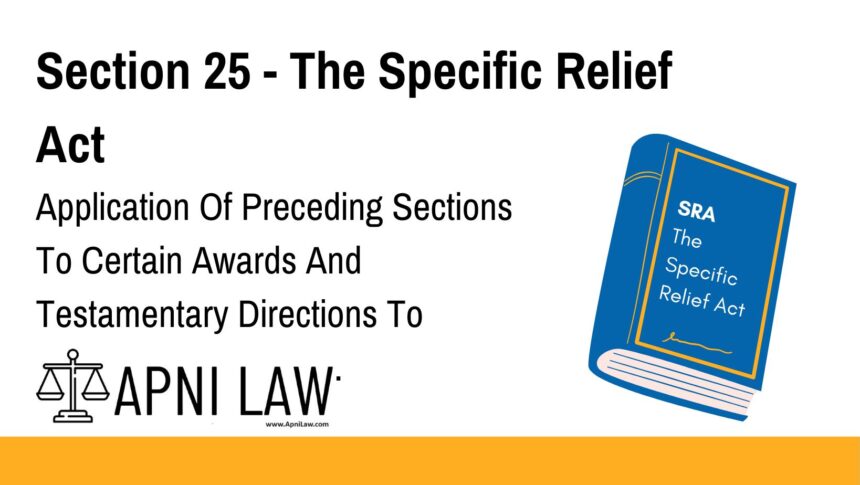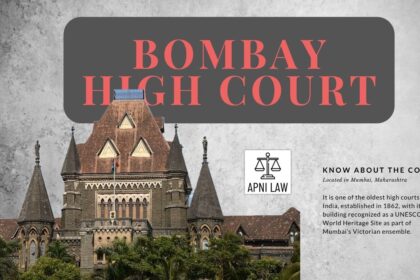Section 25: The Specific Relief Act
Application of Preceding Sections to Certain Awards and Testamentary Directions to Execute Settlements
“The provisions of this Chapter as to contracts shall apply to awards to which the Arbitration and Conciliation Act, 1996 (26 of 1996), does not apply and to directions in a will or codicil to execute a particular settlement.”
Explanation of Section 25 – The Specific Relief Act
Section 25 of the Specific Relief Act applies contract law to two key scenarios:
- Arbitration Awards (Not Covered by the Arbitration and Conciliation Act, 1996)
If an award is made outside the Arbitration and Conciliation Act, 1996, the provisions for contracts in the Specific Relief Act apply. These provisions make it easier to enforce the award, just like enforcing a contract, if the terms of the award are not fulfilled. - Testamentary Directions for Executing Settlements
This section also applies when a will or codicil directs someone to carry out a settlement. If a person is asked to execute a settlement (a formal agreement, often related to property), Section 25 applies the rules for contracts. This ensures that the person is legally required to follow through with the instructions in the will or codicil.
Illustration
Example 1: Application to Non-Arbitration Awards
Suppose two parties agree to a settlement outside the Arbitration and Conciliation Act, 1996. If one party does not honor the agreement, Section 25 allows the other party to use contract law to enforce the settlement.
Example 2: Testamentary Direction to Execute Settlement
A will instructs a person to execute a settlement for the deceased. Section 25 ensures that the person must carry out this instruction, just as they would enforce a contract, unless they have a valid reason not to.
Common Questions and Answers on Section 25 – The Specific Relief Act
1. Why is Section 25 important for arbitration awards?
- Answer: Section 25 ensures that arbitration awards outside the scope of the Arbitration and Conciliation Act, 1996 are treated as contracts. This allows parties to enforce these awards in a straightforward way, using contract law.
2. How does Section 25 apply to wills and codicils?
- Answer: If a will or codicil directs someone to execute a settlement, Section 25 treats these directions like contracts. This means the person is legally bound to execute the settlement, ensuring the will’s instructions are followed.
3. Are there any exceptions to Section 25?
- Answer: Yes, Section 25 does not apply if the arbitration award falls under the Arbitration and Conciliation Act, 1996.
Conclusion
Section 25 of the Specific Relief Act ensures that arbitration awards and testamentary directions to execute settlements are enforceable like contracts. It simplifies the legal process, making it easier for individuals to fulfill their obligations. This section plays an essential role in both arbitration and inheritance cases.








